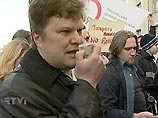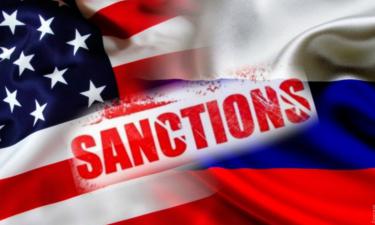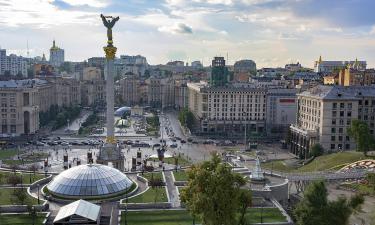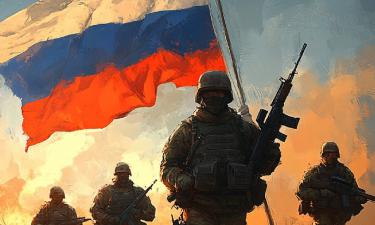Demonstrations near Embassies to be prohibited in Russia
 On March 31 draft law “On meetings, demonstrations, and pickets” was passed by the State Duma.
On March 31 draft law “On meetings, demonstrations, and pickets” was passed by the State Duma.
There was a need of this law – previously, demonstrations were regulated by the law of the USSR from July 1988. However, the adopted draft law was criticized by the opposition as a step to authoritarianism. One of former leaders of Yabloko party Sergey Mitrokhin along with several activists conducted the picket near the State Duma building to express protest against the draft law. The police detained the activists because they had not notified the authorities about the picket, then they were released.
In the beginning of 1990s demonstrations were common in Russia, and each region of the country adopted its own law to regulate them.
The final version of the draft law is likely to be adopted by the Duma with no problem as the Duma leader - United Russia party is supporting the law. Leader of United Russia Boris Gryzlov estimated the bill as more democratic than the regulations for demonstrations applied before. If one wants to go for demonstration, he/she is required not later than 10 days before the demonstration, to notify the authorities about this intention in written form. The purpose and the methods of the demonstration should be mentioned. After receiving the document that the notification was accepted, one can go ahead and have a demonstration.
Demonstrations are banned in some places. Some of these places have always been on the ban list for demonstrations in Russia. However, the deputies may regret that they added some other locations on the list.
Demonstrations are forbidden near the residency of Russian President. Activists have never been allowed in that area, guards always stopped them.
The new draft law forbids demonstrations near the buildings of federal, regional and local authorities. There is little logic in prohibiting demonstrations near the State Duma building, for example. Every day thousands of people pass the Duma building. One cannot say that the picket participants are more dangerous to the State Duma than some terrorist who may choose the Duma building the target for a terrorist attack. Demonstrations are addressed to authorities. How the authorities are going to know about people protests if the demonstrations will be conducted in living areas?
In addition, the new law forbids demonstrations near the enterprises demanding high level of technological and ecological security. This can influence the activity of NGO protecting environment, such as Greenpeace. This organization already criticized the law and promised to submit an appeal on it to Russian Constitution Court and European Court on Human Rights. Meanwhile, the law-makers may be right in this point. Some ecologists are radical and able to break something in the technology of such an enterprise. This may result in accident and bring harm to the environment. Russia has enough accidents without this.
As for forbidding demonstration near the Embassies of foreign countries, our law-makers were wrong to adopt this point. Probably they forgot as almost all Russian political parties were protesting against the war in Iraq near the American Embassy. United Russia (adopted the draft law) had the biggest demonstration of several thousand protesters. In 1999 politicians brought their supporters to the American Embassy to protest against bombing Yugoslavia. How will the public express their criticism of unfair foreign and domestic policy of other countries now?
The draft law has some other faults. The grounds for refusal to accept the notification about the demonstration, are unclear. The document says that “the authorities can reject the notification, if the purposes of the demonstration contradict the norms of the society morale”. There is no law definition for moral norms, and for this reason an official will have the authority to decide what is moral and what is not.
Subscribe to Pravda.Ru Telegram channel, Facebook, RSS!





